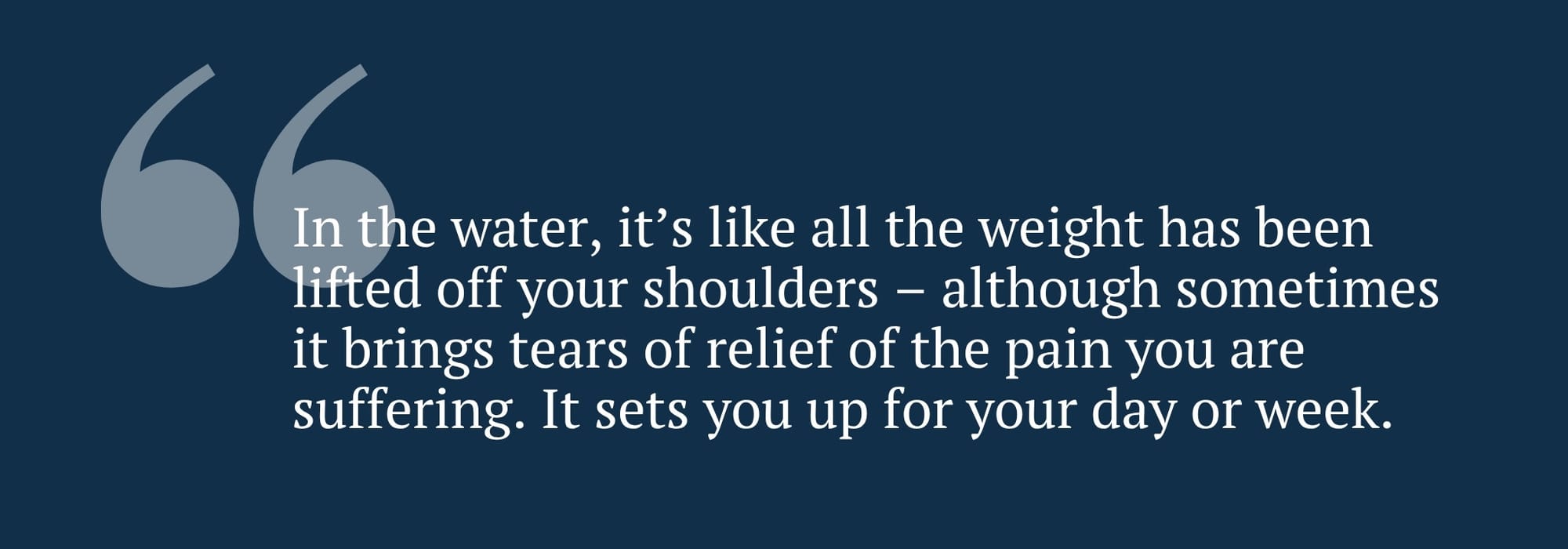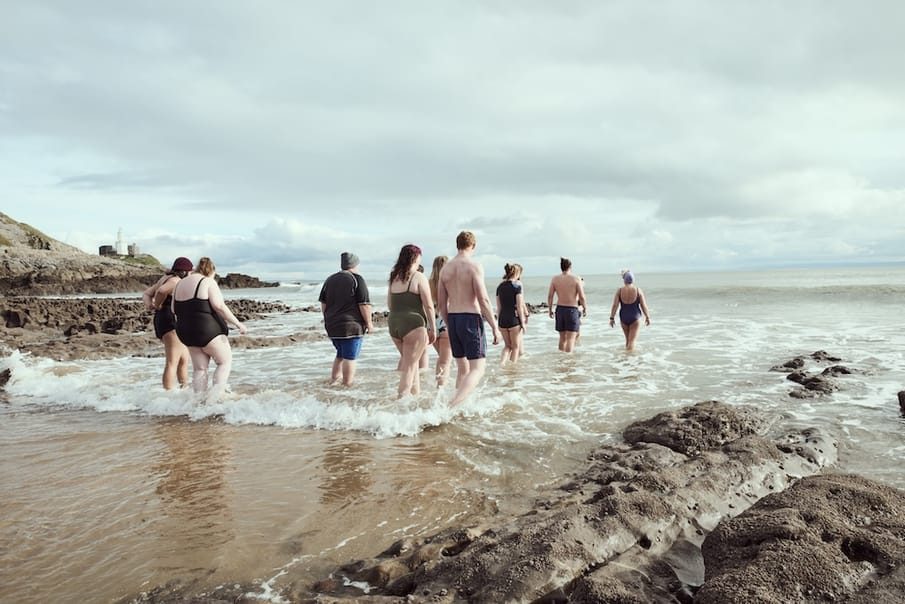We’re putting community initiatives in the spotlight, and today, we’re highlighting the national swimming group making a splash…
On the pebbled shore of a loch, several people step forwards into the cold lapping water, laughing and smiling. Some swim, while others paddle or wade. Afterwards, as they warm up, homemade cake is shared while people chat, or simply take a moment to themselves.
Mental Health Swims is a charity dedicated to bringing people together to swim, creating inclusive spaces that empower you to enjoy the water, while fostering a sense of community.
“I received a mental illness diagnosis in 2018, and it came with a warning of the stigma I might experience,” says Rachel Ashe, the founder of Mental Health Swims. “As I was coming to terms with what it meant for me, what it meant for my past, what it meant for my future, I wanted to meet other people who understood what it’s like to live with mental illness.”
In 2019, Rachel leapt into the freezing waters of the Firth of Forth, as part of the famous New Year’s Day dip in Edinburgh. “I wouldn’t recommend anyone start on New Year’s Day – it’s not the time to start safely,” she notes. “It was horrible, so cold. But afterwards, this really bizarre thing happened, where, as I was walking up the beach, and the burn of the cold was wearing off, I felt a glimmer of hope. There was something, and I was like, ‘Ah, this is different.’ I just felt more myself, I suppose, or the version of myself that I wanted to be. Hopeful.”
Inspired, Rachel continued open-water swimming, but wanted to create a space that was specifically for mental health. She set up a group locally and, spurred on by its success, developed Mental Health Swims into a national organisation.
It now has more than 100 groups spanning England, Scotland, and Wales, has supported 30,000+ people, and trained more than 400 volunteers.
One of those volunteers is Audrey, who was diagnosed with anxiety and depression, and experiences agoraphobia, so finds it difficult to leave the house. She had tried other swim groups, but didn’t feel as welcome as she’d hoped. Then, she discovered Mental Health Swims and became a regular participant, going on to train to become a co-host at her local group at White Loch, near Newton Mearns, Scotland.
“You have to overcome so much in the water, it makes you more resilient,” says Audrey. “It develops your trust in people. Through all my years of being involved in mental health, I’ve never been part of something that is so powerful, transformational.”
The resilience Audrey feels is a common experience; one 2019 research paper, published in the journal Qualitative Research in Sport, Exercise, and Health, examined the wellbeing benefits of sea swimming. The study found that swimmers experienced an increased sense of psychological resilience, improved self-belief, and were able to find “alternative and expanded perspectives about themselves and their world”.
Being part of Mental Health Swims has supported Audrey’s mental health hugely, including helping her leave the house. “I think I had lost myself in all my illness, but I feel the water and the group have helped me find the real me again,” she says.
Pauline, a member of Audrey’s group, reports similar benefits. She first attended in August 2024, and is now a regular at the monthly swim that sees up to 20 people swimming together. “After a session, I feel amazing,” Pauline says. “In the water, it’s like all the weight has been lifted off your shoulders – although sometimes it brings tears of relief of the pain you are suffering. It sets you up for your day or week.
“It makes me feel I’m capable of anything, and others can coax me to try new things,” Pauline adds. “I’ve made so many friends, and we’ll be friends for ever, I believe. We have a group chat, and look out for each other if we’re having a difficult time.”
Rachel highlights how they train all of their volunteer hosts on mental health, risk assessments, and cold water safety, and that many have lived experience of mental health issues themselves.

They also make it clear that the swims are about supporting people with mental health conditions, using a peer support model (where people with similar experiences come together) rather than being general wellbeing groups.
Initiatives like this are really an ideal wellbeing combination, as there’s growing research into the benefits of open water swimming. A preparatory study by the University of Portsmouth into the effectiveness of outdoor swimming to help people reduce symptoms of depression showed ‘promising’ results, with reductions in symptoms of depression and anxiety. The aforementioned 2019 research paper found that participants seemed to “derive a deep sense of connectedness and belonging from swimming”. This included feeling connected to the other swimmers, and a sense of belonging to a community.
Open water swimming has increased in popularity, especially since the pandemic. It’s a free way of being active, and swimming without a gym membership, and members of the Outdoor Swimming Society (OSS) cited the importance of being in nature as a motivating factor. Overwhelmingly, an OSS survey revealed that 94% of people chose to swim outdoors due to the “joy”, expressing that they felt happier and less stressed in the aftermath.
And, for Rachel, the emphasis of Mental Health Swims is very much on these mental and emotional effects, rather than aiming for swimming PBs. “It’s more around the welcoming spaces,” she says. “We take a very ‘dips, not distance’ approach, because if you say, ‘cold water’, that can also bring to mind triathlons and sitting in ice baths, and that isn’t us. This is more about enjoying being in or near water, and spending time with people.”
Mental Health Swims also holds indoor swimming sessions through its Swim Together programme, opening their work to those who can’t access outdoor swimming, or don’t feel confident in doing so.
The swim map on Mental Health Swims’ website shows where groups take place, and you can contact them if you have any questions. As a charity, it works on a donation basis, and you’ll need your own kit, such as weather-appropriate swimwear (e.g. wearing a wetsuit if it’s cold), and warm clothes to change into.
“I believe anyone suffering with a mental illness should try these swims,” says Pauline. “You don’t have to swim – you can dip, or just enjoy the company. Just give it a try. I did, and it’s changed my outlook on life for good.”
Article originally published on 6th August 2025. Updated on 12th January 2026.


Comments